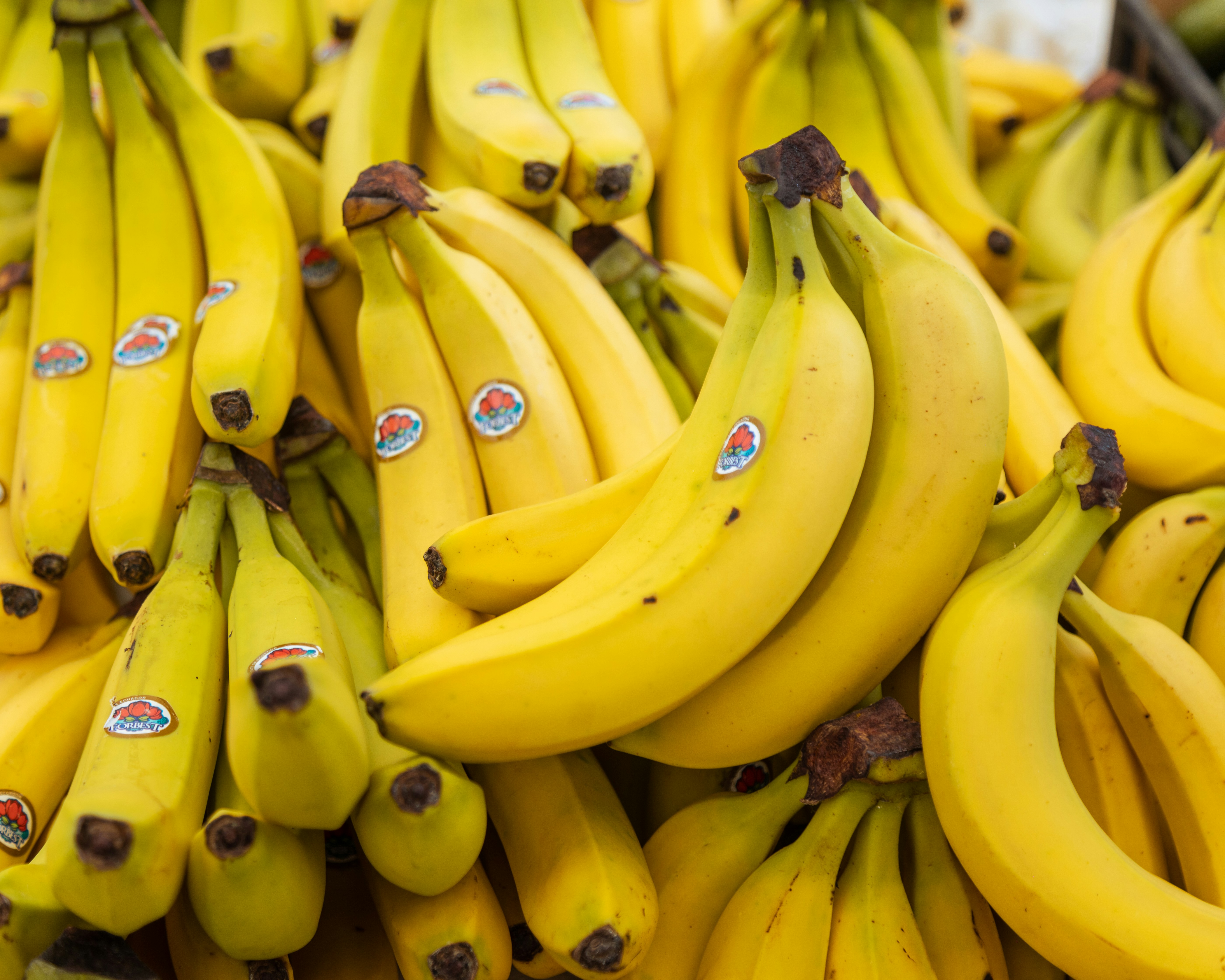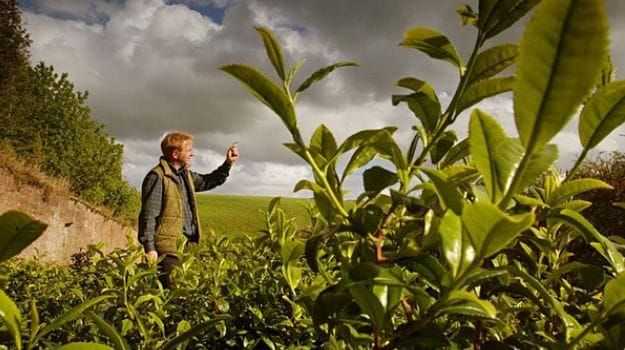Jonathon Jones examining the crop at the Tregothnan tea plantation in Cornwall. Photograph: Marc Hill/AlamySales of standard teabags may be falling but our best growers are even exporting to China.The British love affair with a builder's brew might have gone off the boil, but the rise of a new type of plantation is promising to cultivate our taste for tea.
A growing number of tea gardens are being established in the UK, with numbers set to rise in the coming year. While market analysts Mintel announced last week that sales of standard tea bags fell by 13% between 2012 and 2014, sales of speciality tea bags rose by 15%. "People are being more discerning. It's not about volume, it's about quality," says Tam O'Braan, who began propagating the tea plant Camellia sinensis at his Wee Tea plantation on the Dalreoch estate in Perthshire in 2011.
Five independent commercial tea operations are established in Scotland but, with his recently established Tea Growers Association, O'Braan is planning to help another eight take root in the coming year. "Once it hits double figures, we'll easily get 20 growers in the next five years on top of that," he says.
His attitude seems surprisingly altruistic, but O'Braan is confident there's plenty of room for growth. "We have the capability of bringing about different flavours in different locations, so having my neighbour grow tea isn't a challenge to what I am doing," he says, comparing the situation to the multitude of whisky distilleries in Scotland.
O'Braan's reach also extends south of the border. This summer, he has helped establish a rooftop tea garden of 60 trees at the Dorchester in London, boasting three varieties of Camellia sinensis. As well as helping train the hotel's team in the art of tea preparation, "the idea is that we will be using the tea that we are harvesting and we will try to incorporate [it] into some of our hotel elements," says Gregory Philippe, director of food and beverage at the hotel.
The establishment of Scottish tea has been steeped in success. After weathering the devastating winter of 2012, O'Braan's venture blossomed. Now boasting 14,000 plants, the Wee Tea plantation scooped the gold award from the Salon du Th"é in Paris in March for its Dalreoch Smoked White Tea, while this week the Dorchester will officially launch the addition of Scottish-grown teas to its menu. As well as Dalreoch White Tea and Smoked White Tea produced from the Wee Tea plantation, guests will be able to order Garrocher Grey. A smokey-tasting cupful scented with Monarda flowers, the tea is grown in Dumfries and Galloway by Angela Hurrell " who finished planting her garden just last year. But it isn't only in Scotland that British tea is burgeoning. The Tregothnan estate near Truro, Cornwall, became Britain's first tea plantation in 1999, launching its products in 2005. "We led the way in the UK," says Jonathon Jones, managing director of trading. He too believes British-grown tea is going from strength to strength. "We are excited about the future," he says.
Jones certainly believes the tea's unusual provenance is a selling point, with Tregothnan proudly marketing its brand as "the most British tea in history". But, he says, the British customs surrounding tea-drinking also merit celebration. "We took the Chinese national drink and we made it our national drink and now we are shipping that back to them," he says.
Academics are also showing interest. Exploring the potential for tea cultivation in the UK is Catherine Rouse, a masters student at the University of Southampton. Rouse is developing models to investigate locations that could support the plants, taking into account requirements such as acidic soil and optimum temperatures of 13C-30C. "I am exploring the feasibility of the UK for growing tea, so that includes factors such as climate, the topography and the soil conditions," she explains. "Is there an area potentially more suitable or less suitable for growing tea than elsewhere?"
According to O'Braan, location is critical to his tea's taste. "The first flush [in February] is delicate and delicious, but pretty much the plant is then stressed in Scottish conditions throughout the year," he says. "[So] it is producing this light flavour and growing at a slower rate than you'd expect."
With suitable locations limited, single-estate British-grown tea is likely to remain a premium product. Fifty grams of Dalreoch Scottish Smoked White Tea will set you back "£115, while 11g of Tregothnan Camellia costs "£36. O'Braan believes quality will triumph over quantity. "What we are trying to do is make individual, beautiful, exquisite teas " not replant the Highlands," he says.











